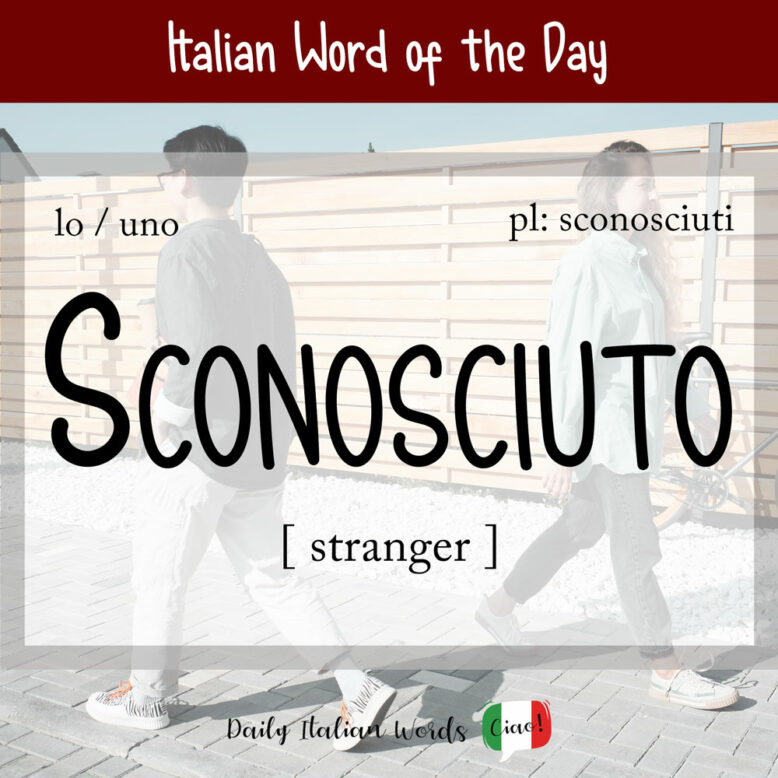The Italian word for a person one does not know or with whom one is not familiar is sconosciuto if you are talking about a man or sconosciuta for a woman. It is the past participle of sconoscere, a relatively uncommon verb meaning to disown or not want to recognise.

The respective plurals are sconosciuti (male strangers or a mixed group of strangers) and sconosciute (female strangers).
Ti ho detto di non parlare con gli sconosciuti!
I told you not to speak to strangers!
Trivia: if you get rid of the initial “s”, you have the antonym conosciuto which means known. It is an adjective as well as the past participle of the verb conoscere (to know). It can also mean well-known, famous or renowned.
The expression un illustre sconosciuto (lit: an illustrious stranger) is how you would say an absolute nobody in Italian, referring to a person of no importance or fame. A perfect stranger, on the other hand, is quite literally un perfetto sconosciuto.
Some possible synonyms for sconosciuto include estraneo (stranger), anonimo (anonymous person) and ignoto (unknown person).

Sconosciuto may also be used as an adjective to describe someone or something that is unknown, unexplored or unidentified or new. For example:
- un artista sconosciuto = an unknown artist
- un luogo sconosciuto = an unexplored place
- una causa sconosciuta = an unidentified cause
- una sensazione sconosciuta = a new sensation
La scrittrice era sconosciuta fino a qualche mese fa, prima che la sua ultima fatica diventasse uno dei libri più venduti dell’anno.
The author was unknown until a few months ago, before her latest work became one of the best-selling books of the year.
Heather Broster is a graduate with honours in linguistics from the University of Western Ontario. She is an aspiring polyglot, proficient in English and Italian, as well as Japanese, Welsh, and French to varying degrees of fluency. Originally from Toronto, Heather has resided in various countries, notably Italy for a period of six years. Her primary focus lies in the fields of language acquisition, education, and bilingual instruction.


